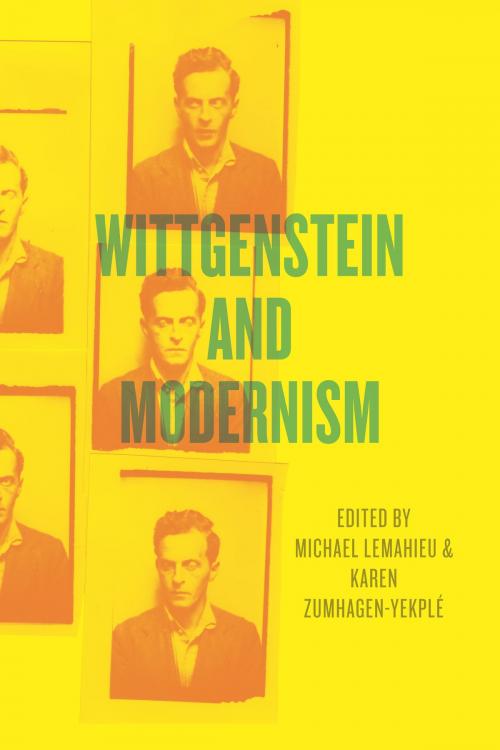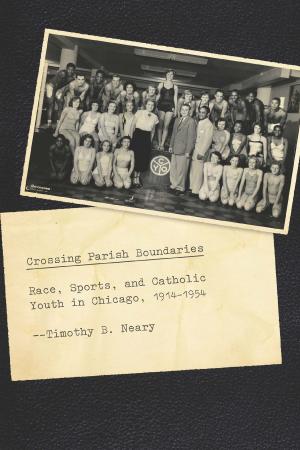Wittgenstein and Modernism
Nonfiction, Religion & Spirituality, Philosophy, Modern, Fiction & Literature, Literary Theory & Criticism, European| Author: | ISBN: | 9780226420547 | |
| Publisher: | University of Chicago Press | Publication: | December 29, 2016 |
| Imprint: | University of Chicago Press | Language: | English |
| Author: | |
| ISBN: | 9780226420547 |
| Publisher: | University of Chicago Press |
| Publication: | December 29, 2016 |
| Imprint: | University of Chicago Press |
| Language: | English |
Ludwig Wittgenstein famously declared that philosophy “ought really to be written only as a form of poetry,” and he even described the Tractatus as “philosophical and, at the same time, literary.” But few books have really followed up on these claims, and fewer still have focused on their relation to the special literary and artistic period in which Wittgenstein worked. This book offers the first collection to address the rich, vexed, and often contradictory relationship between modernism—the twentieth century’s predominant cultural and artistic movement—and Wittgenstein, one of its preeminent and most enduring philosophers. In doing so it offers rich new understandings of both.
Michael LeMahieu Karen Zumhagen-Yekplé bring together scholars in both twentieth-century philosophy and modern literary studies to put Wittgenstein into dialogue with some of modernism’s most iconic figures, including Samuel Beckett, Saul Bellow, Walter Benjamin, Henry James, James Joyce, Franz Kafka, Adolf Loos, Robert Musil, Wallace Stevens, and Virginia Woolf. The contributors touch on two important aspects of Wittgenstein’s work and modernism itself: form and medium. They discuss issues ranging from Wittgenstein and poetics to his use of numbered propositions in the Tractatus as a virtuoso performance of modernist form; from Wittgenstein’s persistence metaphoric use of religion, music, and photography to an exploration of how he and Henry James both negotiated the relationship between the aesthetic and the ethical.
Covering many other fascinating intersections of the philosopher and the arts, this book offers an important bridge across the disciplinary divides that have kept us from a fuller picture of both Wittgenstein and the larger intellectual and cultural movement of which he was a part.
Ludwig Wittgenstein famously declared that philosophy “ought really to be written only as a form of poetry,” and he even described the Tractatus as “philosophical and, at the same time, literary.” But few books have really followed up on these claims, and fewer still have focused on their relation to the special literary and artistic period in which Wittgenstein worked. This book offers the first collection to address the rich, vexed, and often contradictory relationship between modernism—the twentieth century’s predominant cultural and artistic movement—and Wittgenstein, one of its preeminent and most enduring philosophers. In doing so it offers rich new understandings of both.
Michael LeMahieu Karen Zumhagen-Yekplé bring together scholars in both twentieth-century philosophy and modern literary studies to put Wittgenstein into dialogue with some of modernism’s most iconic figures, including Samuel Beckett, Saul Bellow, Walter Benjamin, Henry James, James Joyce, Franz Kafka, Adolf Loos, Robert Musil, Wallace Stevens, and Virginia Woolf. The contributors touch on two important aspects of Wittgenstein’s work and modernism itself: form and medium. They discuss issues ranging from Wittgenstein and poetics to his use of numbered propositions in the Tractatus as a virtuoso performance of modernist form; from Wittgenstein’s persistence metaphoric use of religion, music, and photography to an exploration of how he and Henry James both negotiated the relationship between the aesthetic and the ethical.
Covering many other fascinating intersections of the philosopher and the arts, this book offers an important bridge across the disciplinary divides that have kept us from a fuller picture of both Wittgenstein and the larger intellectual and cultural movement of which he was a part.















